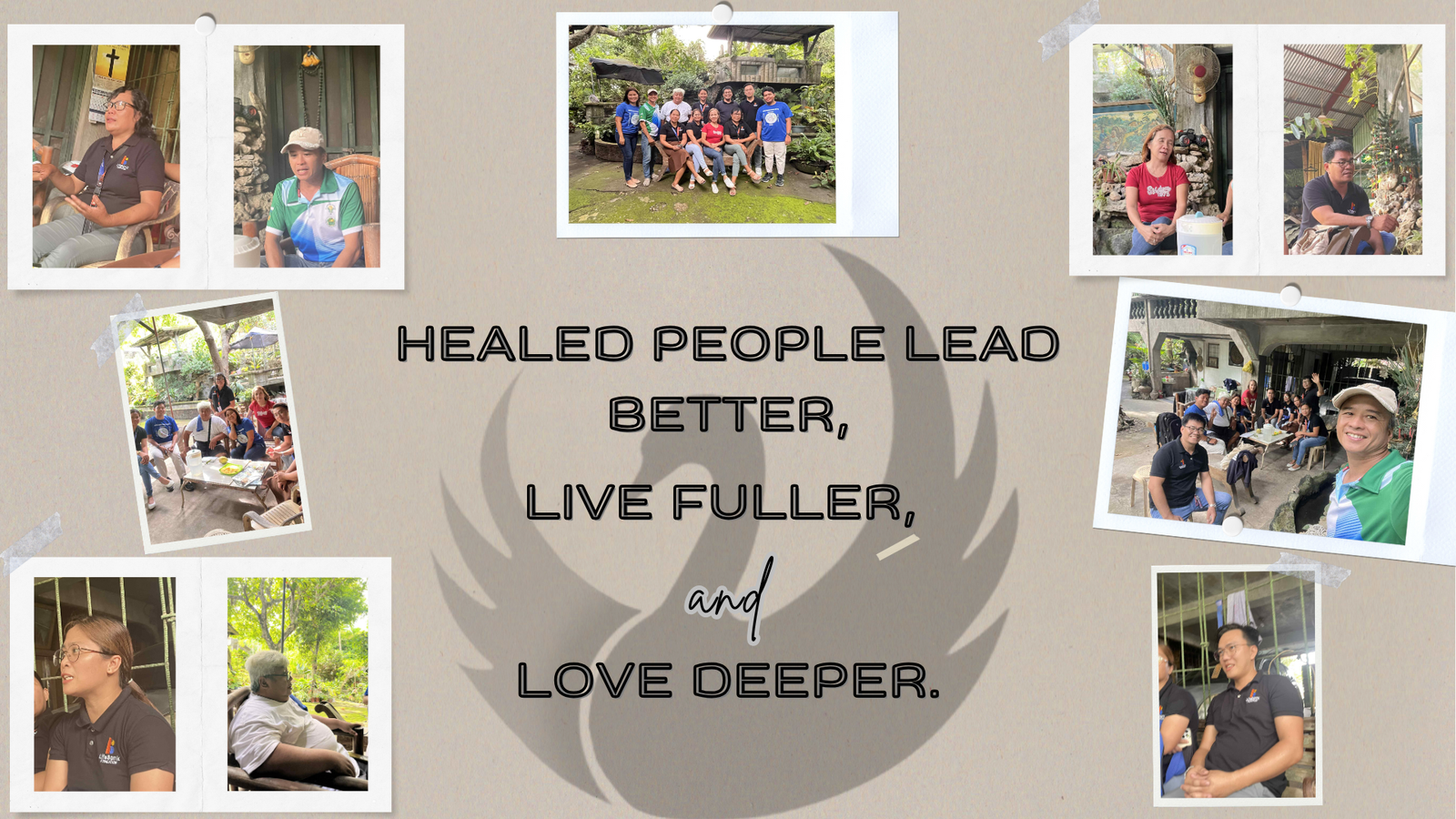Let’s be honest: life can feel like a whirlwind. Between leadership duties, family pressures, emotional curveballs, and the occasional existential crisis (plus a few missed project targets!), who has time to… breathe?
Well, apparently, SEA Inc.’s Inner Conditioning Workshop (ICW) gave people exactly that—and more.
Designed as a companion to SEA’s IPAT-SIAD (Integrated Participatory Accountability Transparency towards Sustainable Integrated Area Development), ICW is not just a retreat—it’s a reboot. It reminds local leaders, volunteers, and community workers that transformation begins with self-awareness, healing, and emotional courage.
Here’s a look at what some brave souls shared, proving that when the inner soil is tended, the outer roots grow deeper.
Jean: “God rerouted my path.”
Before ICW, Jean described her life as “toxic.” Tragedy after tragedy—her mother’s death from a misdiagnosis, and heartbreak from an unfaithful husband—had left her weary. But in ICW, something clicked.
“This is the group where I truly belong,” she said during Kamustahan, the ICW follow-through circle.
Her turning point came when she stopped fearing her story and started reclaiming it.
“My pain became my strength. God molded me through it. Now I’m no longer afraid.”
Today, she’s not just standing up for her children—she’s standing in faith, firmly believing “We are one body in Christ, with different functions.”
Jean’s renewal is a living example of grassroots empowerment. You can’t build sustainable change unless people believe they are worthy of it.
Archie: “In God, nothing is impossible.”
Archie used to wrestle with his demons—vices, bad habits, and self-doubt. But after turning to God, and through ICW’s spiritual lessons (including Sir Nic’s memorable soul-spirit-body explanation!), he began his transformation.
“ICW helped strengthen my faith. I’m thankful for Kamustahan—it’s where I feel safe to open up.”
Now he mentors others with humility and hope:
“Pray always. Give all the glory to God.”
When transformation is spiritual as well as structural, communities thrive holistically.
Joshel: “No more phones at the dinner table!”
At first, Joshel was skeptical—what was ICW even about? But a few days in, things shifted. She found herself embracing quiet moments, and realizing that life’s noise didn’t always need to be entertained.
“Now, I filter what truly matters. I’ve stopped paying attention to gossip—and yes, I also try not to use my phone while eating!”
Her siblings, however, only lasted three days on that habit—but hey, progress is progress!
Discipline in the small things—like mindful eating—builds character that sustains bigger community responsibilities.
Batchoy: “I began to heal… and give back.”
Batchoy didn’t hold back. He shared how unresolved childhood trauma led him into destructive behaviors. People labeled him, misunderstood him—but in ICW, he found space to breathe and begin healing.
“People judged me. But ICW helped me accept my past. Now I coach kids in Santa Barbara—for free.”
He gave up his addictions 15 years ago and holds onto his favorite truth:
“The Lord will provide—but you still need to help yourself.”
Healing personal wounds allows community mentors like Batchoy to pass on wisdom to the next generation. Empowered people empower others.
Vincent: “Kamustahan keeps the flame alive.”
Vincent shared how easy it is to forget lessons once a training ends. But ICW’s Kamustahan community became his lifeline.
“Before, I bottled everything up. Now I can share my struggles with others.”
Continuous accompaniment is critical. Programs like ICW work best when they ripple into peer support systems.
Avie Joy: “I realized the weight of my voice.”
Avie was part of the “Mom Squad” during ICW. She used to be short-tempered, prone to snapping at loved ones. But the workshop offered her something radical—silence, reflection, and a deep realization.
“I used to interrupt people a lot. I didn’t realize how many I had hurt just with my tone.”
Now, she’s gentler—with herself, her kids, and especially her late husband’s memory.
“I had thoughts of revenge. But I learned that forgiveness lifts a heavy burden.”
Emotional intelligence isn’t fluff. It’s fuel for peaceful family and barangay dynamics.
Amelda: “We are fearfully and wonderfully made.”
A minister and mother, Amelda found kindred spirits in ICW. She shared God’s love with others and received it back tenfold through new relationships.
“Through ICW, I met people who now live in my daily prayers.”
For her, the mission is clear:
“We’re all part of one body in Christ. Each with different functions.”
Unity in diversity builds strong civic structures. When roles are honored, collaboration thrives.
Julroy: “Let go, and the path clears.”
As a leader of several associations, Julroy knew pressure all too well. Missed targets once made him feel like a failure. But through ICW, he embraced a new mindset.
“I learned to let go of obstacles. When your purpose is for the good of all, things align.”
His wisdom was hard-won:
“I struggled with anxiety and depression, but now I understand: wisdom deepens your foresight.”
Strategic thinking, like inner calm, doesn’t happen overnight—but both are game changers for sustainable leadership.
Analy: “We must share.”
For Analy, ICW wasn’t just a workshop—it was a wake-up call. She used to carry her burdens in silence. But in the company of others, she found lightness.
“I realized I’m not alone. It’s important to share.”
She even shared a wild story: she and her mother once fell into a canal after an accident—but thankfully, it had just rained, and the mud softened their fall.
“I believe the Spirit protected us.”
Empathy and shared stories can soften the blow of life’s hard landings.
Final Thought: From Inner Soil to Social Soil
SEA Inc.’s IPAT-SIAD isn’t just about physical infrastructure or governance systems—it’s about the people behind it. The Inner Conditioning Workshop reminded everyone that healed people lead better, live fuller, and love deeper.
“You don’t plant a strong tree on dry ground,” someone said during the closing circle.
“You nourish the soil first. ICW is that nourishment.”





Leave a Reply